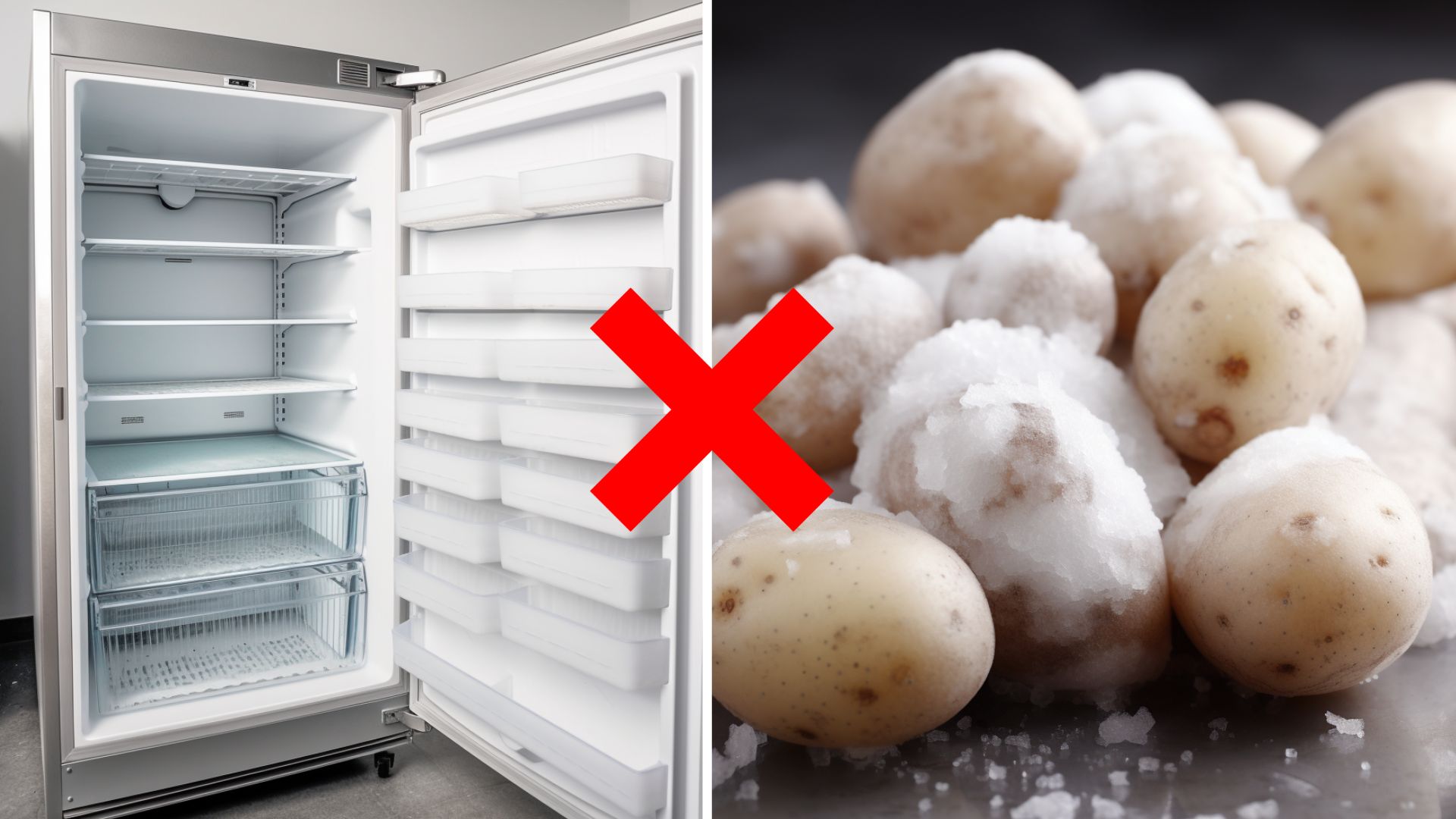1. Some vegetables
Vegetables such as cucumbers, lettuce, and melons contain a lot of water. When these foods are frozen, the water forms ice crystals that can destroy the cellular structure of a vegetable or fruit. When the ice melts during the thaw, the result is often a mushy and watery consistency. You lose the crispness and texture that many people love about these products.
2. Cream and milk
When dairy products such as cream and yogurt are frozen, the fat and water can separate, resulting in a grainy and uneven texture. The original smooth buttery texture disappears, and the product becomes less appetizing in taste and texture. There are some exceptions, such as hard cheeses, but as a general rule, it’s best to avoid freezing dairy products.
3. Some cheese
Soft cheeses such as cottage cheese and ricotta contain more water than hard cheeses. When frozen and re-thawed, the water and fat content can separate, resulting in a gritty texture. This makes it less suitable for many dishes, especially those that require a smooth, creamy texture.
4 eggs
If you freeze whole eggs with the shells still in, there is a risk that they will expand and the shells will crack. This causes the egg to leak and be destroyed. If you need to freeze eggs, it’s best to crack and beat them in a bowl before freezing them. Some also prefer to separate the yolks from the whites to freeze them separately, as they can have different uses in cooking.
Craving eggs? Here are 50 easy egg dishes for you to try
5. Mayonnaise and similar sauces
Mayonnaise and similar emulsions are made by carefully combining fat and liquid into a firm, creamy mixture. When such products are frozen, this delicate scale can be destroyed, and the various components can be separated. The result is a greasy, greasy texture that lacks the smooth, well-balanced flavor of the original product. This also applies to certain sauces and dressings that rely on the emulsifying process.
6. Potatoes
Potatoes and other starchy vegetables, such as sweet potatoes, can change their texture and become soft and watery when frozen and then thawed. This is because starch breaks down and the water in the cells expands, damaging the cell structure. In some cases, such as cooking potatoes and using them in casseroles, freezing may be appropriate. However, if you freeze and then thaw raw potatoes, you will likely notice a deterioration in texture and flavor.
HOW TO BAKE POTATOES – 6 simple steps to a fluffy inside and a crispy outside
7. Fried foods
Fried foods are known for their crunchy surface and juicy interior. Unfortunately, these properties are lost when fried products are frozen. When it is thawed again, the moisture from the ice crystals seeps into the fried topping, making it soft instead of crunchy. For best results, fried foods should be eaten soon after cooking.
8. Dishes that contain a lot of sauce or cream
Ready meals that contain a lot of sauce or cream can be cut when frozen and re-thawed. As mentioned in the fifth point, the different components of the sauce, such as the fat and the liquid, can separate, resulting in an uneven and grainy texture. In some cases heating the sauce slowly and whisking constantly while defrosting can help to try to recover the emulsion, but this is not always successful.
This is how you can easily make your own mayonnaise – much tastier than store-bought mayonnaise
9. Some fish and shellfish products
When it comes to seafood, freshness is a crucial factor in taste and quality. Freezing seafood that has already been frozen and thawed can result in deterioration in texture and flavor. This process can break down the proteins in the fish’s flesh, leaving it dry and stringy. It is best to buy fresh fish and shellfish and consume them within a short period of time or freeze them only at once if necessary.
10. Coffee
Freezing whole or ground coffee beans can have a negative effect on the taste. Coffee is known to absorb aromas and flavors from its surroundings, and your freezer can be a place with many strong, competing aromas. Additionally, freezing can cause the beans to thicken, which can alter the extraction process and impair flavour. To maintain the best quality of your coffee, you should store it in an airtight container at room temperature.
Read more here:
8 common things you should never keep in your closet

“Extreme tv maven. Beer fanatic. Friendly bacon fan. Communicator. Wannabe travel expert.”







More Stories
Why Rare Earth Metals for Electric Cars Are Crucial for Modern Mobility
“We want to promote critical rules approach”
“A lot happened during the trip,” Jönköping County Council